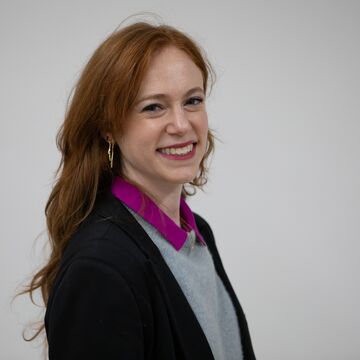

Jennifer Michelle Plumridge
Lecturer
Contact
Bio
Prior to studying at the School of the Art Institute of Chicago, where Jen Plumridge (she/her) obtained her BFA from the Fashion Department, she lived in Nashville, TN, and had hands on experience sewing for a variety of artists in the music industry. Jen received her M.Ed. in Secondary Education for Visual Arts from DePaul University. She has worked within the local Chicago fiber community where she taught knit and sewing classes, as well as ran a fabric and yarn shop. In 2020 she collaborated with Jim Duignan for his retrospective show Stockard Institute: 25 Years of Radical Pedagogy. Jen has also worked for local fashion brand Jeune Otte, creating knitwear design, knit production, pattern drafting, and pattern grading. Her work focuses on environmentally sustainable practices within textile and garment production.